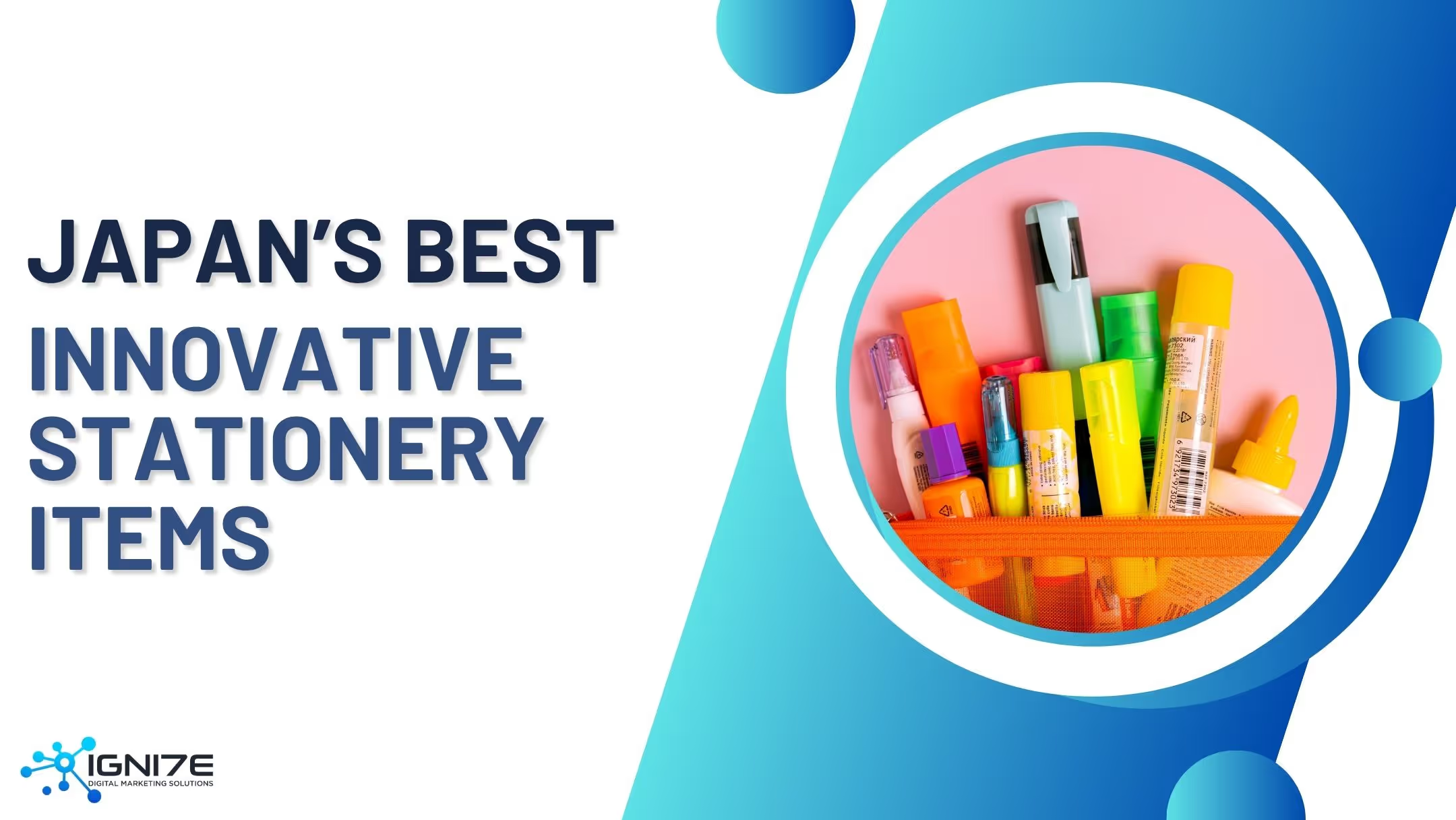Top 10 Department Stores in Japan for Global Brands

Entering the Japanese market presents exciting opportunities for foreign brands, but success hinges on making the right connections. One of the best ways to build a strong presence is by collaborating with Japan’s esteemed department stores, which are known for their unmatched retail experience and loyal customer base. From traditional luxury outlets like Mitsukoshi to fashion-forward giants like Isetan, the Japanese department store landscape offers various options for brands looking to engage with Japanese consumers.
In this article, we explore the top department stores with which foreign brands should partner, examining each store's unique appeal, customer base, and opportunities for collaboration.
Japanese Department Stores Foreign Brands Should Partner with
- Mitsukoshi
- Takashimaya
- Daimaru
- Isetan
- Marui (OIOI)
- Parco
- Seibu
- NEWoMan
- Hankyu
- Tokyu Hands
1. Mitsukoshi
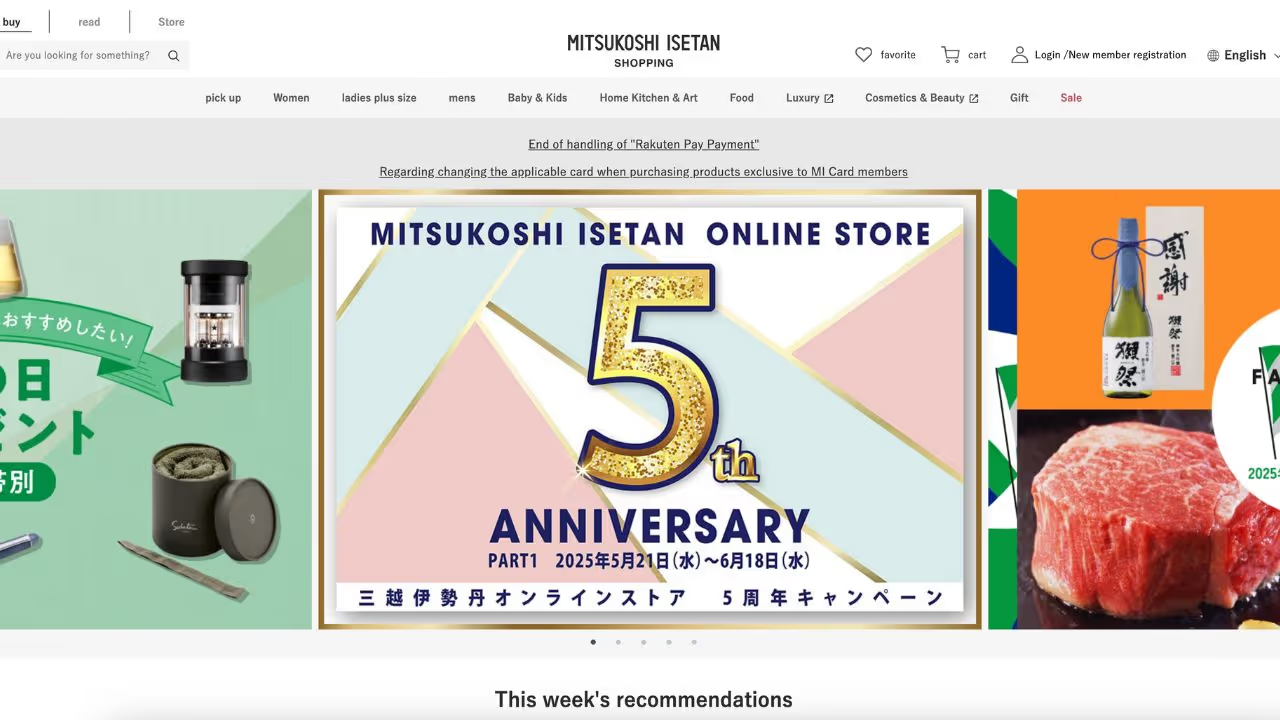
Source: Mitsukoshi Homepage
Founded in 1673, Mitsukoshi is Japan’s oldest department store and a valid symbol of luxury and refinement. With its flagship location in Tokyo’s Nihonbashi district, Mitsukoshi is a heritage brand deeply trusted by generations of Japanese consumers. The store is synonymous with top-tier customer service, classic architecture, and curated offerings of premium fashion, beauty, art, and traditional Japanese goods. For foreign brands aiming to position themselves as prestigious, timeless, and culturally aligned with Japanese values, Mitsukoshi offers unmatched credibility and reach, particularly among affluent, older, and tourist-heavy demographics.
2. Takashimaya
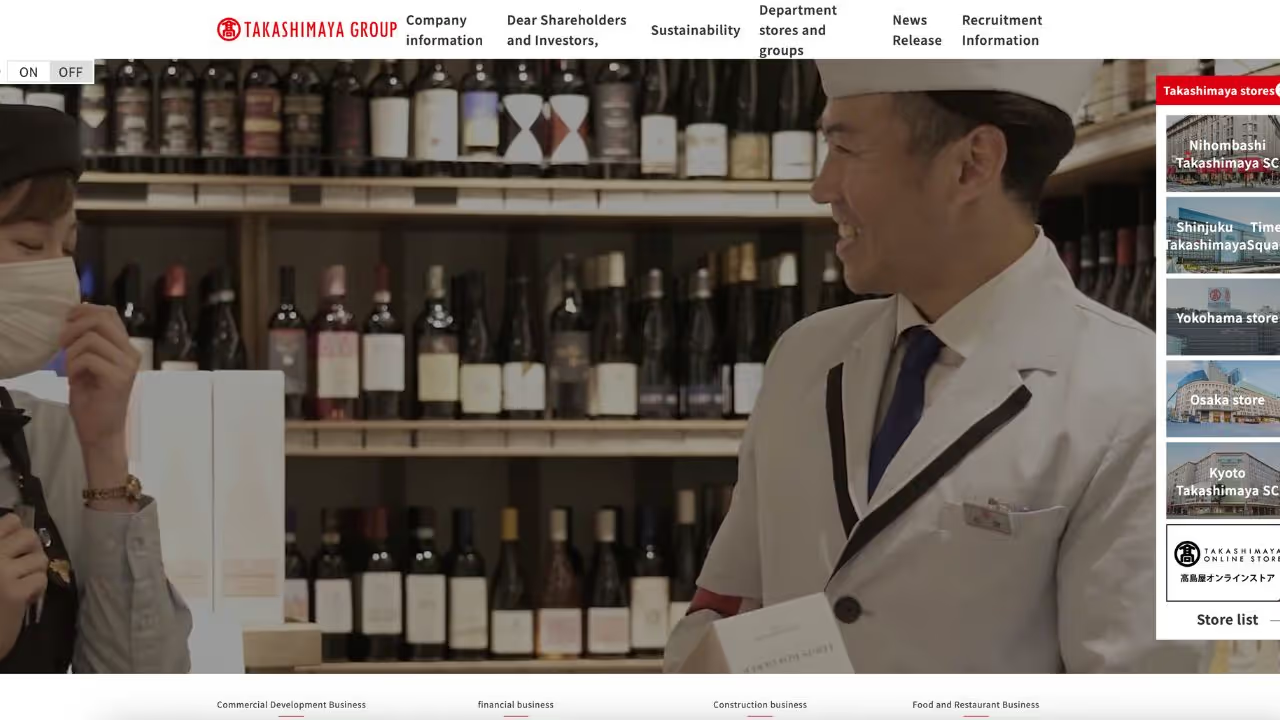
Source: Takashimaya Homepage
Takashimaya, established in 1831, is one of Japan’s most respected department store chains, with a strong presence in key cities like Tokyo, Osaka, and Kyoto. Takashimaya combines tradition with innovation, offering various products—from high fashion and luxury accessories to gourmet foods and homewares. Known for its elegant store environments and successful foreign brand partnerships, Takashimaya is ideal for international labels looking to enter the Japanese market with strong institutional support. Its Nihonbashi location alone houses flagship boutiques from Hermès, Berluti, and Bottega Veneta, reflecting its long-standing role as a gateway for global luxury.
3. Daimaru
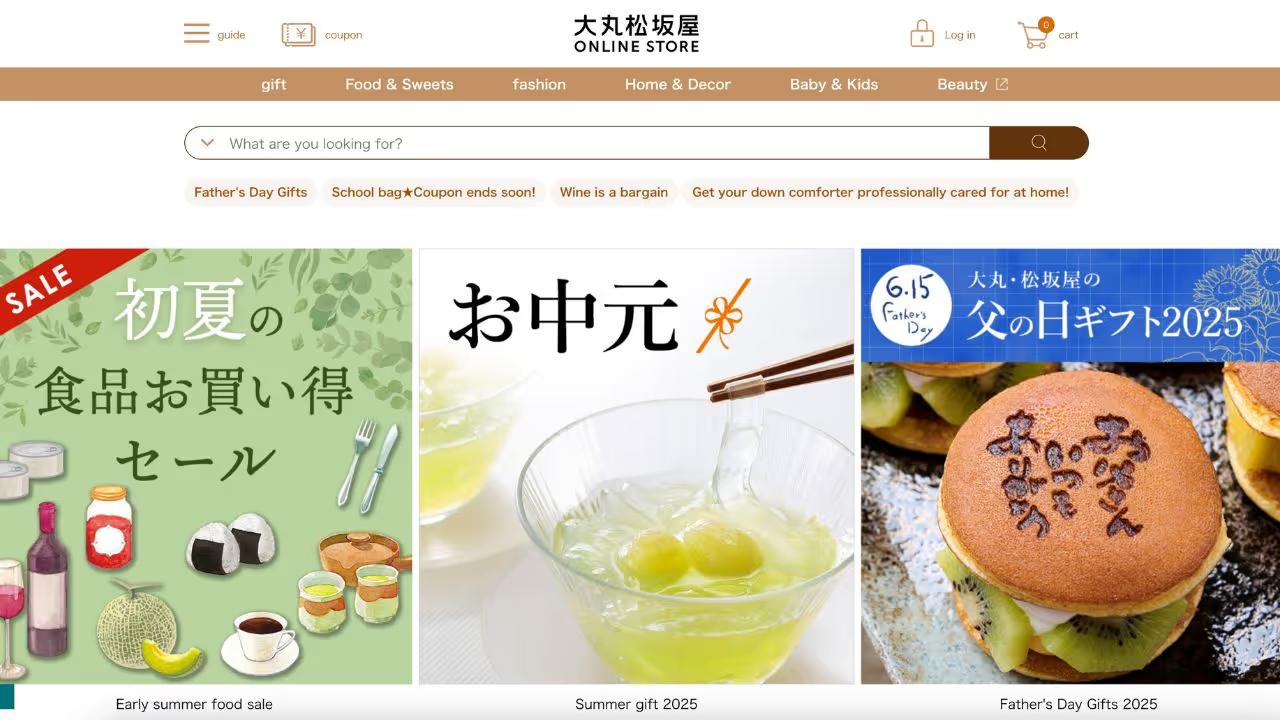
Source: Daimaru Homepage
Originating in Kyoto in 1717, Daimaru is a historic department store chain now operating across Japan, with a powerful influence in the Kansai region. The Daimaru Shinsaibashi store in Osaka is particularly notable—an architectural landmark and a luxury retail destination. Daimaru is known for blending tradition with modern luxury, making it a powerful platform for foreign brands aiming to capture both local shoppers and international visitors. The store layout, high foot traffic, and established relationships with international labels make it a strategic partner for brands entering Western Japan.
4. Isetan
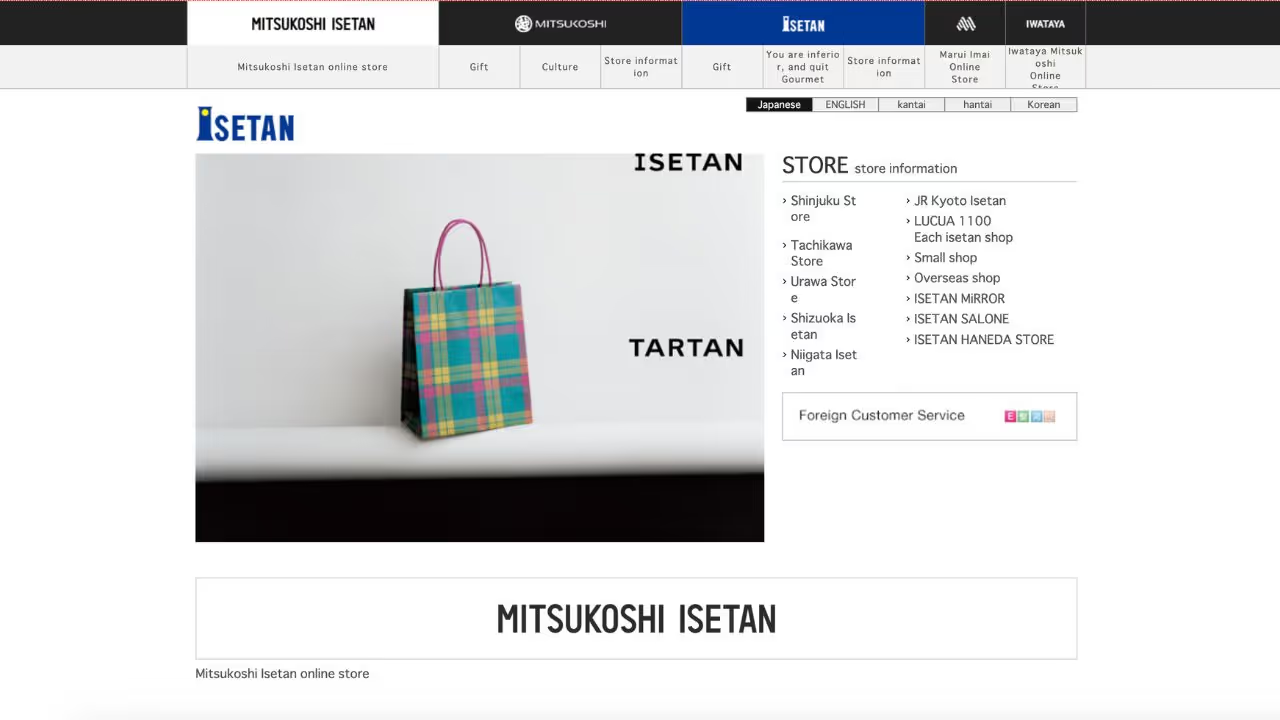
Source: Isetan Homepage
Isetan, headquartered in Tokyo’s Shinjuku district, is widely recognized as Japan’s most fashion-forward department store. It has built a strong reputation for curating global trends and showcasing emerging and luxury fashion brands in immersive, innovative ways. Isetan is especially influential among younger, urban, and style-savvy consumers, often leading the way in retail pop-ups, concept shops, and limited-edition drops.
It’s important to note that Isetan is part of Mitsukoshi Isetan Holdings, which was formed after a 2008 merger with Mitsukoshi. While both stores share corporate resources, they retain distinct brand personalities: Mitsukoshi emphasizes timeless luxury and tradition, while Isetan leads in contemporary style and trend-driven curation. For foreign brands, choosing between them or strategically engaging both depends on your target demographic and positioning.
5. Marui (OIOI)
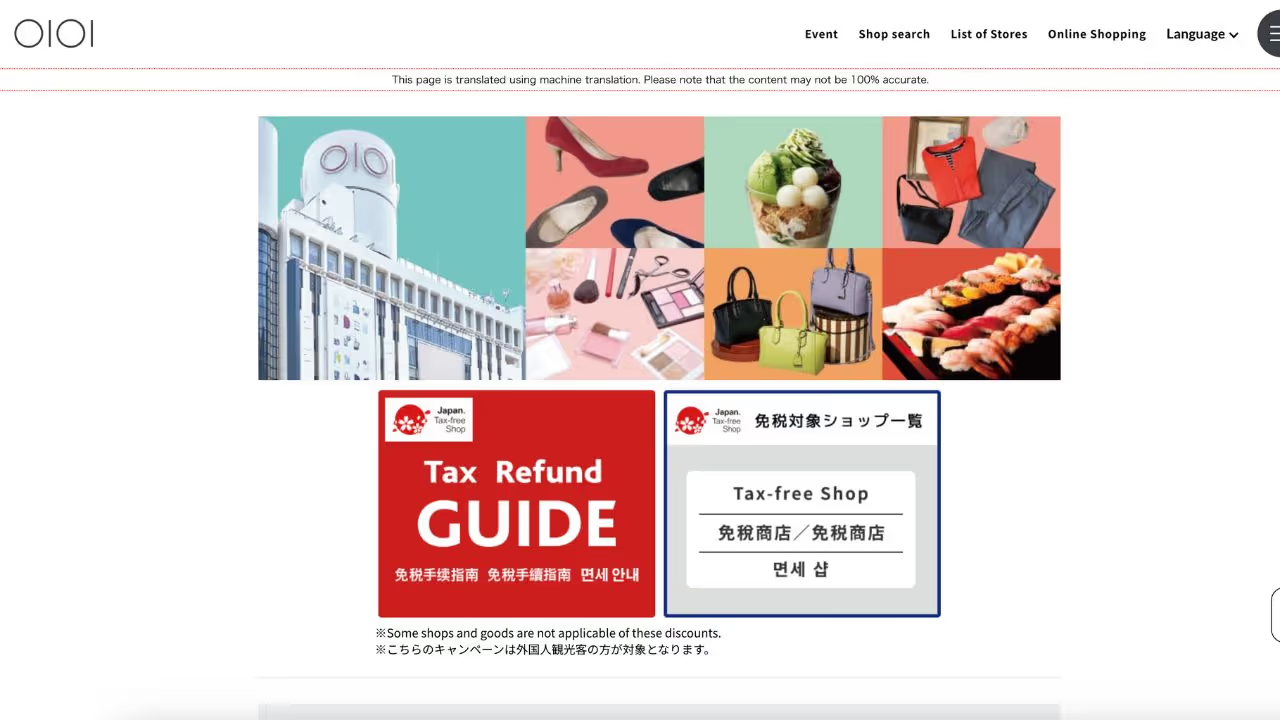
Source: Marui Homepage
Marui, often stylized as OIOI, is a department store group that caters primarily to younger, fashion-conscious urbanites. Unlike traditional department stores, Marui is known for embracing contemporary and casual fashion, lifestyle brands, and digital-savvy shopping experiences. Its stores are frequently found in trendy districts like Shibuya and Shinjuku and often house D2C labels, anime and game culture collaborations, and gender-inclusive fashion. Foreign brands targeting Gen Z and millennials—especially those in streetwear, tech fashion, or niche subcultures—will find Marui a responsive and flexible retail partner.
6. Parco
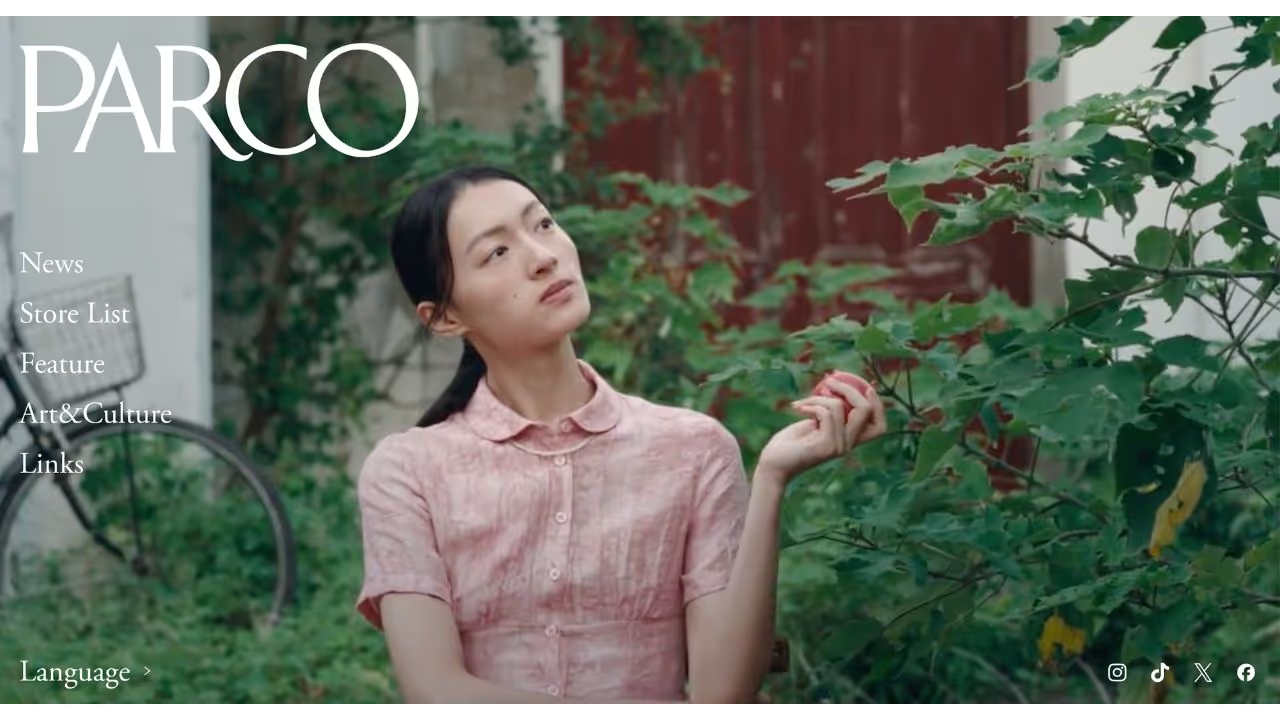
Source: Parco Homepage
Parco is a chain of department stores primarily in Japan, with the first store established in Tokyo in 1953. The company operates 17 stores as of 2023, focusing on fashion, music, art, and drama to offer a creative space for showcasing new talents. Parco has a history of partnering with international brands to introduce diverse cultural experiences to Japanese consumers. Notably, Parco signed a wide-ranging agreement with South Korea's Hyundai Department Store, bringing leading Korean fashion brands to its Shibuya location. Foreign brands seeking to engage with a dynamic, trend-conscious audience will find Parco's innovative approach and commitment to cultural incubation advantageous.
7. Seibu
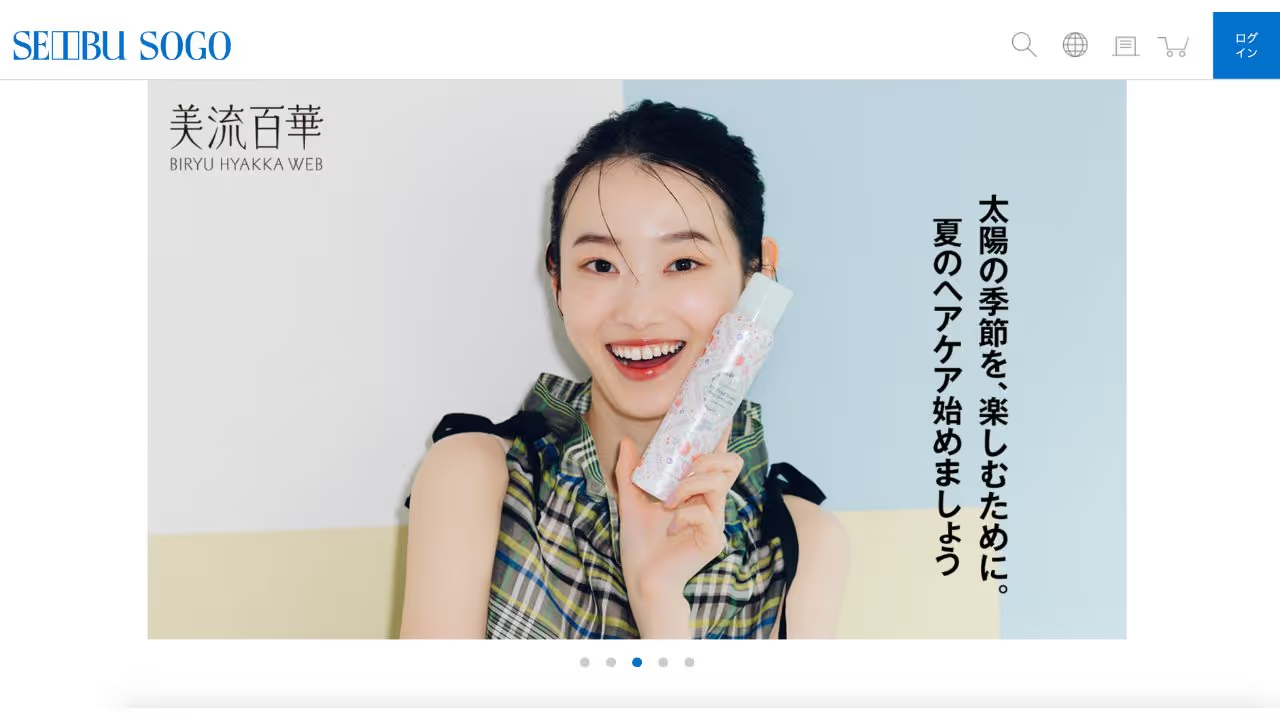
Source: Seibu Homepage
Seibu Department Stores, part of the Sogo & Seibu retail group, operates several locations across Japan and offers a wide range of products, from luxury fashion to household goods. In August 2023, Japanese retailer Seven & i Holdings Co. announced the sale of Sogo & Seibu Co. to U.S. investment fund Fortress Investment Group. This transition may present new opportunities for foreign brands to collaborate with Seibu as it undergoes strategic changes under new ownership.
8. NEWoMan
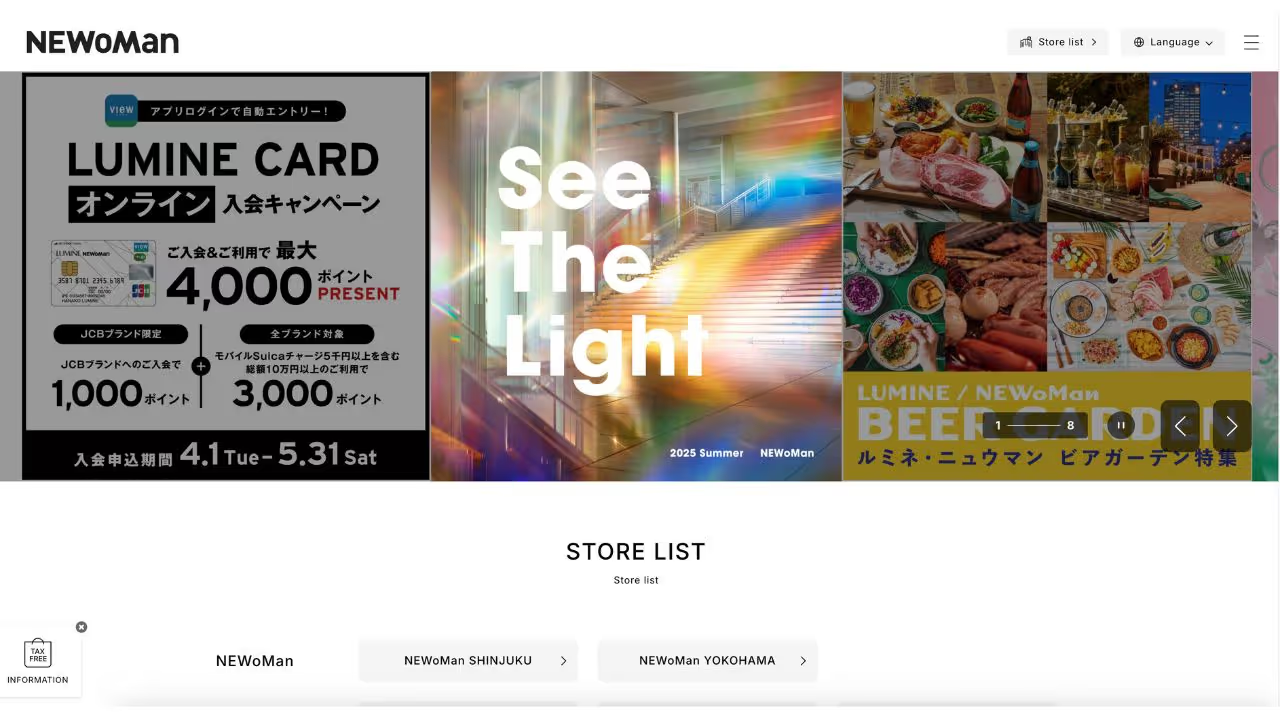
Source: NEWoMan Homepage
NEWoMan is a contemporary shopping complex located in Tokyo's Shinjuku district, adjacent to Shinjuku Station. Catering primarily to working women, NEWoMan offers a curated selection of fashion, beauty, and lifestyle stores, including both Japanese and international brands. Its modern design and focus on quality make it an attractive venue for foreign brands aiming to connect with professional, style-conscious female consumers in Japan's bustling capital.
9. Hankyu
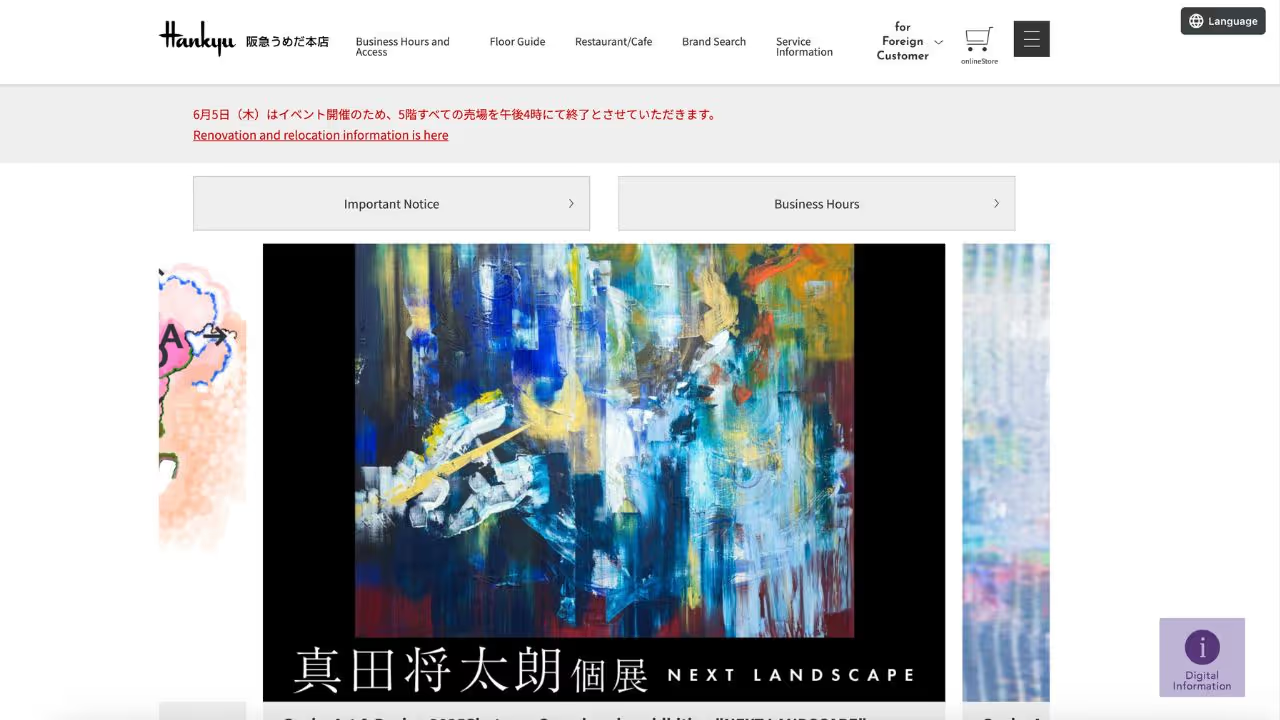
Source: Hankyu Homepage
Established in 1929, Hankyu Department Store's Umeda Main Store in Osaka is one of Japan's largest and most prestigious department stores. After a seven-year rebuilding project, it reopened in 2012, offering sophisticated fashions and lifestyle trends across various categories. Hankyu Men's Osaka specializes in high-quality mainstream and luxury menswear, drawing in style-conscious male shoppers with its curated mix of Japanese and international brands. Known for its premium customer experience and strong brand lineup, Hankyu is an excellent partner for foreign brands targeting affluent, fashion-savvy consumers in the Kansai region and beyond.
10. Tokyu Hands
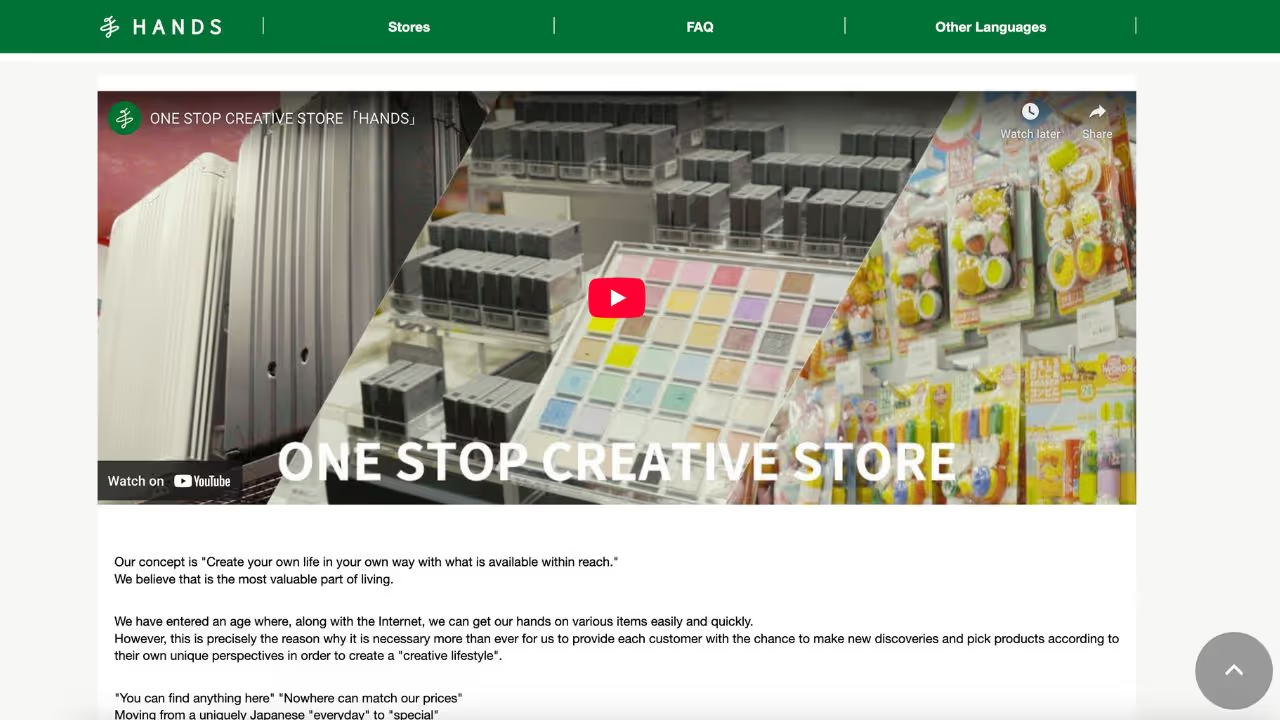
Source: Tokyu Hands Homepage
Tokyu Hands is a well-known Japanese department store chain specializing in DIY, lifestyle products, and quirky, functional goods. Founded in 1976, it has become a popular destination for many products—from home improvement and travel accessories to unique gadgets and office supplies. What sets Tokyu Hands apart is its focus on offering practical, everyday items with a creative twist, often featuring innovative or design-forward products not typically found in traditional department stores. For foreign brands that focus on practical, functional, and novelty goods, Tokyu Hands offers a unique opportunity to engage with the Japanese market in an alternative retail space. Its vast selection and trend-sensitive approach can appeal to a diverse consumer base, including locals, tourists, and expats.
Conclusion
Partnering with the right Japanese department store can elevate a foreign brand's presence in Japan and ensure long-term success in this competitive market. Whether you’re aiming for timeless luxury with Mitsukoshi, trendsetting exposure with Isetan, or connecting with Japan’s younger urban demographic through Marui or Parco, each department store offers unique opportunities tailored to specific brand strategies.
By understanding each retailer's different strengths, foreign brands can strategically position themselves in the Japanese retail space, ultimately reaching the right audience and enhancing their market penetration.











